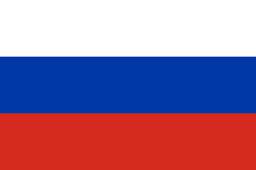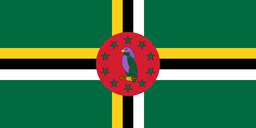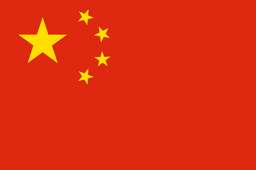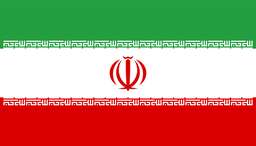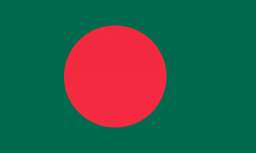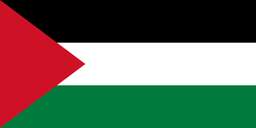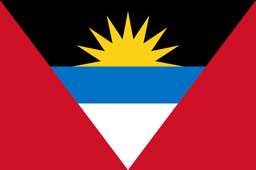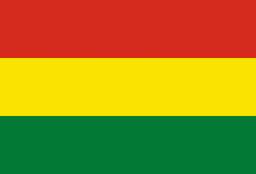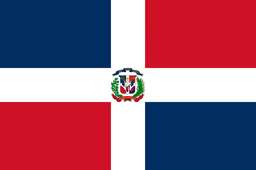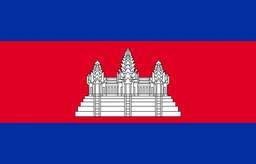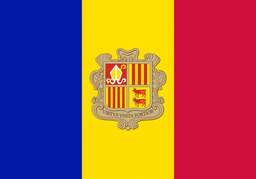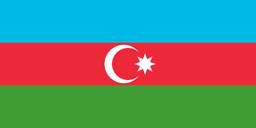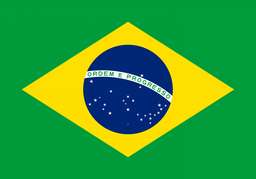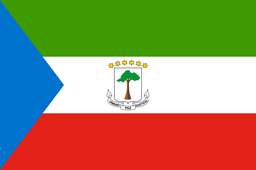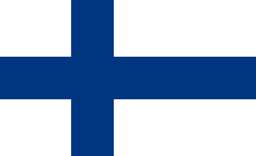Enclosed by the Senegal River, the small nation of the Gambia is part of West Africa. Its friendly people and stunning beaches have earned it another name: the "Smiling Coast of Africa".
Etymology
Early Portuguese explorers who named the nation after the river running through it are the source of the name "Gambia". The river was called "Rio Gambia," English translating to "River Gambia."
Early history
Considered to have lived there since 5000 BC, hunter-gatherers were the first occupants of Gambia. Muslim traders arrived in the 14th century, bringing Islam and blending with the native people. Arriving in 1455, the Portuguese set up slave and gold-seeking trading stations along the coast.
Influence of Muslims and Portuguese (9th–16th centuries)
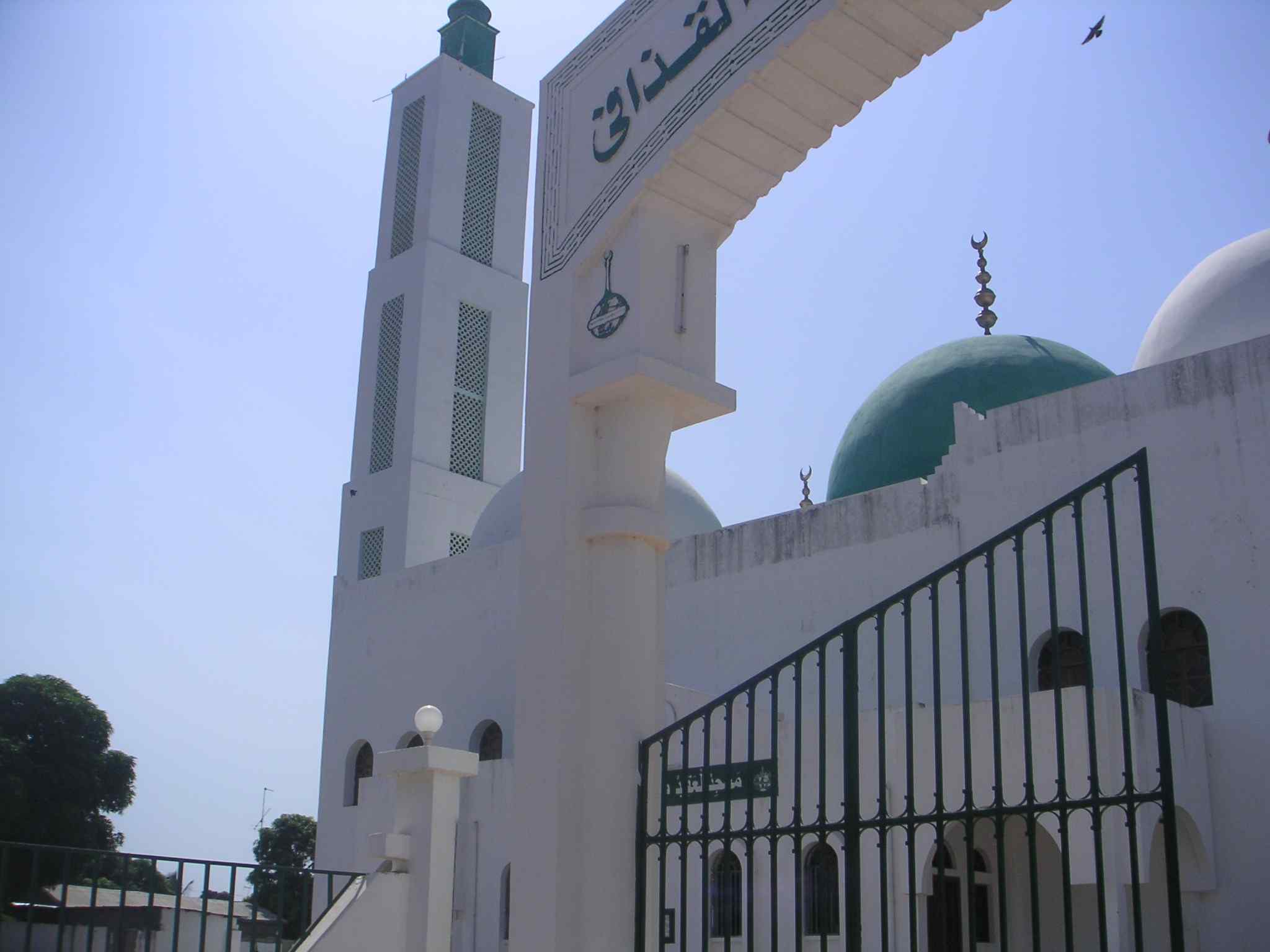
Trading from North Africa brought Islam to Gambia in the late 9th century. After the local leaders converted to Islam, the religion took center stage in the area. This resulted in tight relationships with other Muslim nations and rising trade throughout West Africa. Portuguese traders opened ports along the coast of the Gambia in the fifteenth century. For gold, ivory, and slaves, they traded guns, textiles, and other items. For many European nations at this period, the slave trade started to be a main source of money.
Administration English and French (17th–19th centuries)
The English and French started opening trade stations in Gambia in the 17th century. Still, they did not take dominance of the area until the 19th century. The region was split between two different colonies by the British and the French; the British dominated the area around Banjul, previously Bathurst, while the French oversaw Casamance in Senegal.
Slavery
The history of Gambia was much changed by the transatlantic slave trade. Through Gambia, nearly 3 million slaves are thought to have been taken and transported to the Americas. The area incurred economic losses when slavery was prohibited in the early 19th century, as it depended so on the slave trade.
Colony and Protectorate of Gambia, 1821–1965
In 1821, Gambia came under British colonization and protectorate. With an eye towards economic development via agriculture, more especially, peanuts, the British concentrated on. They also developed roads, telegraphs, and schools.
Modern Era (1965–present)
1965 saw Gambia's independence from British control; in 1970, it became a republic. The nation has struggled politically, economically, and with human rights since then. Following more than two decades of autocratic control, Gambia conducted democratic elections in 2017 and orderly handed off authority to a new president. Through many projects, including tourism, diversification of agriculture, and infrastructure development, Gambia is today working towards growth and bettering the lot of its people.
Considering the Senegambia Confederation's breakup
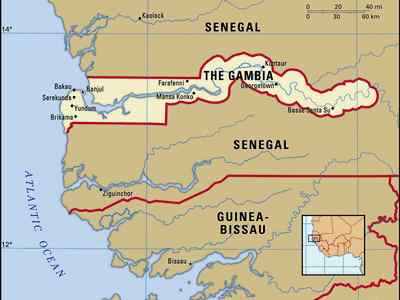
In tandem with Senegal, a neighboring country, Gambia founded the Senegambia Confederation in 1982. But political and financial disputes tore apart this union in 1989.
Topography and Temperature
Running across it is the Gambia River, whose long, thin form defines its geography. The nation boasts a tropical environment with two seasons: rainy from June to October and dry from November to May.
Wildlife
It's estimated that the Gambia is home to around 560 species of catfish, including rare and endangered species like the hooded shark and the African finfoot. piecemeal from hippos, crocodiles, and monkeys, the demesne is also home to a number of other species of creatures.
Political history
Since its independence, Gambia has had multiple political upheavals and difficulties. Coupes, autocratic leaders, and a fight for democracy define the political climate of the nation. Positive developments toward a solid democratic system have arrived somewhat recently.
Constitution
Adopted in 1997, the present constitution of Gambia offers a presidential republic with a separation of powers between the legislative, judicial, and executive departments. It also ensures every person's basic human rights and liberties.
President
The head of state and head of government, the president of Gambia, is also elected by popular vote for a five-year term, with a maximum two-term limit. The president can dissolve the National Assembly and name cabinet members.
International policy
With its neighbors and major powers like China and the United States included, Gambia maintains diplomatic relations with several countries all around. The country is part of the United Nations, the African Union, and the Commonwealth of Nations among international entities.
Government and politics
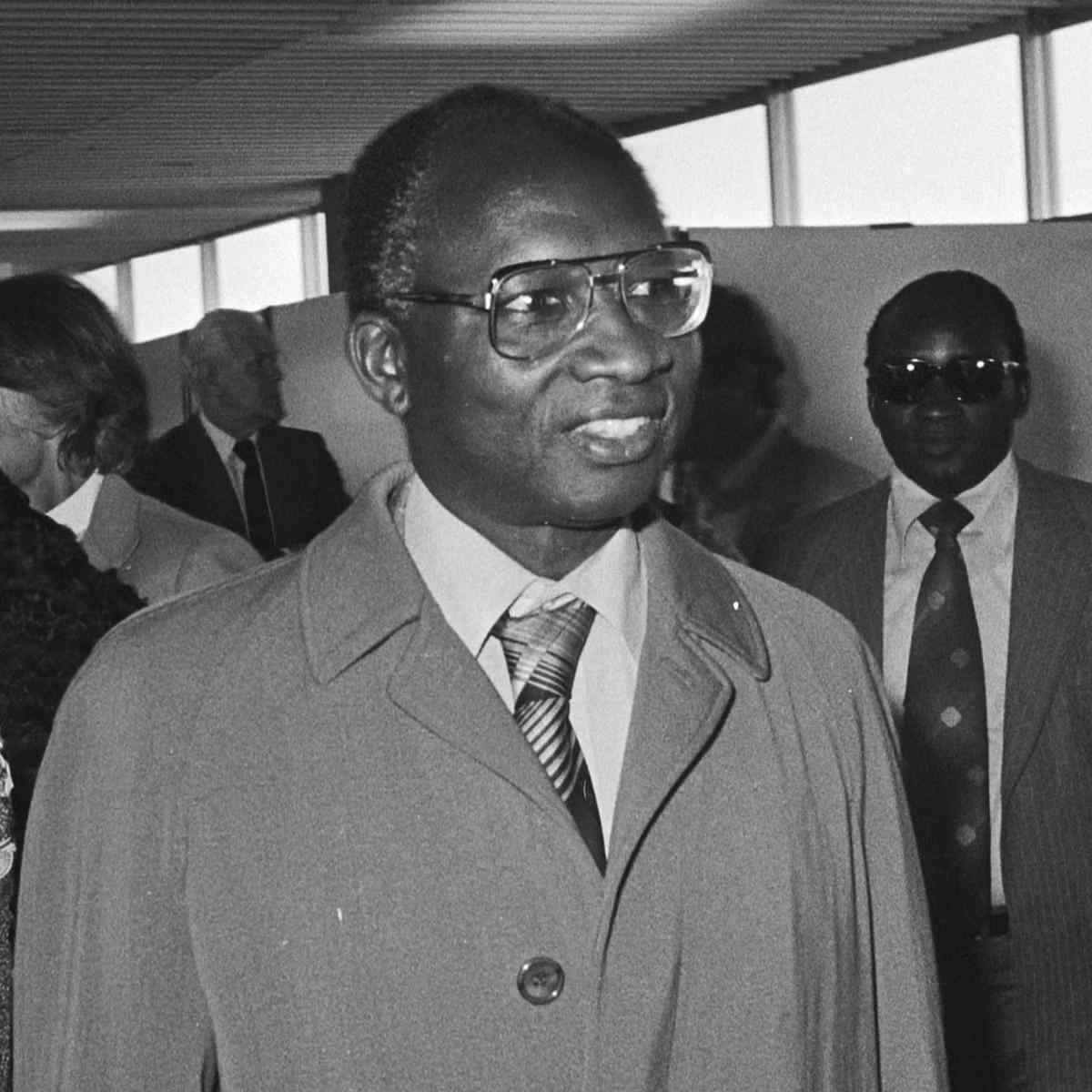
Overseeing the National Assembly and an autonomous court, the executive president of the presidential republic of Gambia is. The country has been boosting popular institutions and practices since the 2017 elections. Former Prime Minister Sir Dawda Jawara led the Gambia after independence. Despite being removed in a military coup in 1994, stability and progress defined his rule. Yahya Jammeh ruled for 22 years after a military coup brought him into office in 1994 until he lost the 2016 elections. He defined his government as corrupt and abusing human rights. Adama Barrow ended Jammeh's 22-year leadership when he won the presidential contest in December 2016. He has then focused on reconstructing the country and strengthening democratic institutions.
Military
Comprising the army, navy, air force, and national police force, Gambia's military is. The government depends on foreign help for military operations and has a low defense budget.
Human rights
Human rights abuses have a legacy in Gambia, particularly under Yahya Jammeh's presidency. Still, projects meant to address and improve human rights in the country have started since the 2017 elections.
Administrative divisions
The Lower River, North Bank, Upper River, Banjul, and Central River are five administrative divisions used in the Gambia. Districts and local government areas split these areas further.
Economy
Recent times have seen attempts to diversify the economy by means of manufacturing and fisheries. The main cash crop in Gambia's substantially agrarian economy is peanuts. For profitable development, the nation also depends on remittances from its diaspora and tourism.
Transport
Gambia has a good road system and uses ferry services to link itself to the surrounding nations. The nation also boasts an international airport at Banjul, its capital.
Demographics
The Mandinka, Wolof, and Fula ethnical groups together account for the vast majority of Gambia's population. Although Mandinka and Wolof are also very widespread languages used there, English is the approved language.
Ethnical groups
Though there are more than ten distinct ethnical groups in Gambia, the Mandinka are the most numerous. The different societies and customs of these communities add to the great variety of Gambia.
Languages
Although Mandinka, Wolof, and Fula are other commonly used languages in Gambia, English is the sanctioned language. These languages represent the several ethnical groups and societies of the nation.
Education
Children aged 7 to 12 in Gambia have free and obligatory education. Still, the country struggles with access to high-quality education, particularly in pastoral areas. Sweats are in progress to increase registration rates and ameliorate the educational framework.
Health
With few resources and little access to appropriate treatment in remote areas, Gambia's healthcare system is still under development. Different projects the government has launched aim to enhance healthcare facilities and lower HIV/AIDS and malaria rates.
Religion
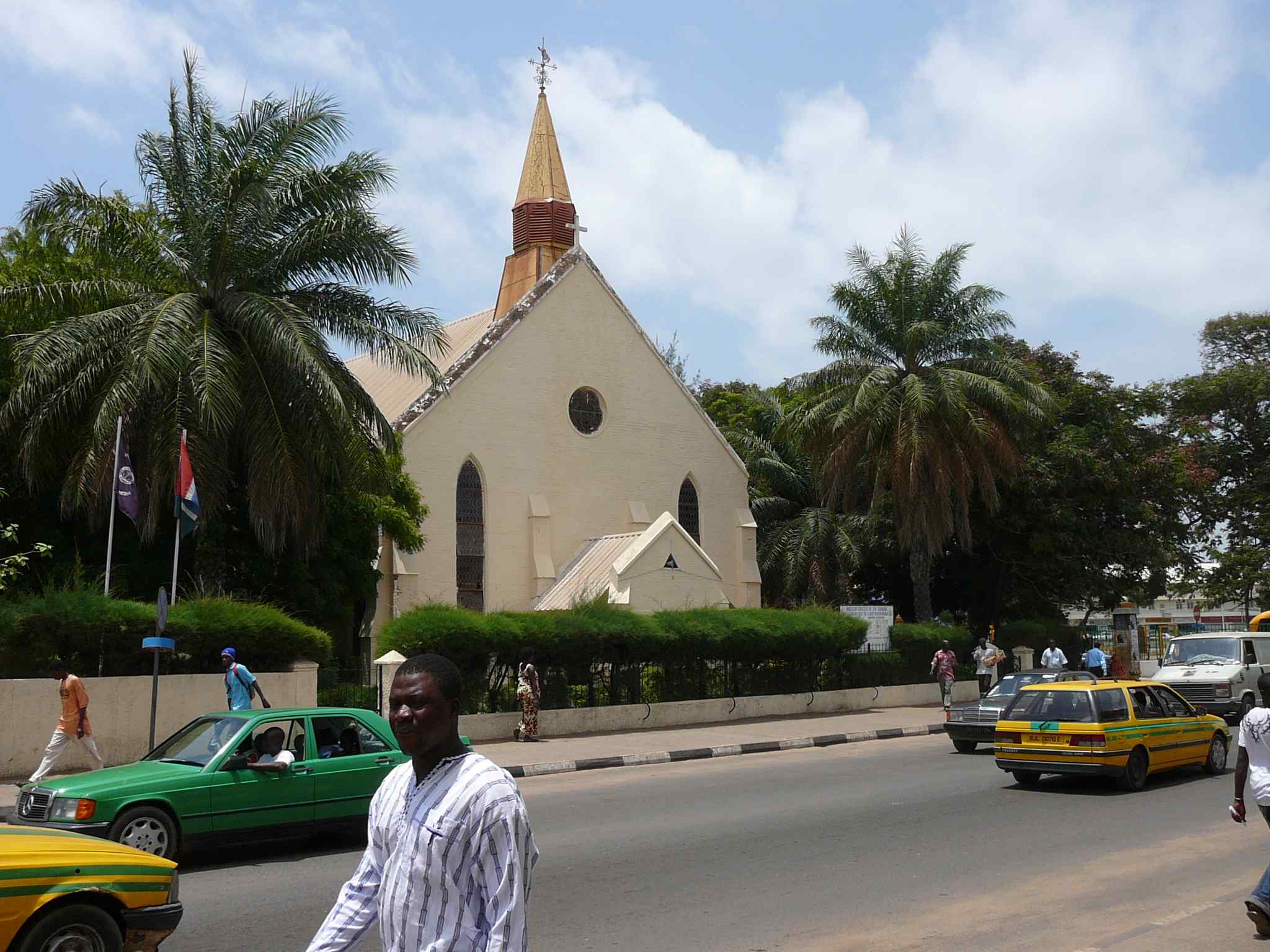
Though Christianity and indigenous faiths are also followed, most people of Gambia are Muslims. The nation is well-known for its religious tolerance, whereby several religions cohabitate amicably.
Culture
Affected by Arab, Portuguese, and English cultures, Gambian society is a mix of several ethnic traditions. With traditional instruments like the kora used extensively, music and dancing are a natural part of Gambian society.
Cuisine
West African and European cuisines are among the several inspirations mixed into Gambian cuisine. A basic food of Gambia, rice is followed in popularity by dishes including benching (one-pot rice meal) and domoda, or peanut butter stew.
Literature
Rich in literary tradition, Gambia boasts authors including Wole Soyinka and Chinua Achebe from their nation. Using several projects, the National Centre for Arts and Culture supports and safeguards Gambian literature.
Tourism
With its stunning beaches and wildlife reserves drawing guests from all across the globe, tourism is a significant industry driving Gambia's economy. Development of this sector and rising visitor numbers are under constant effort.
Sports
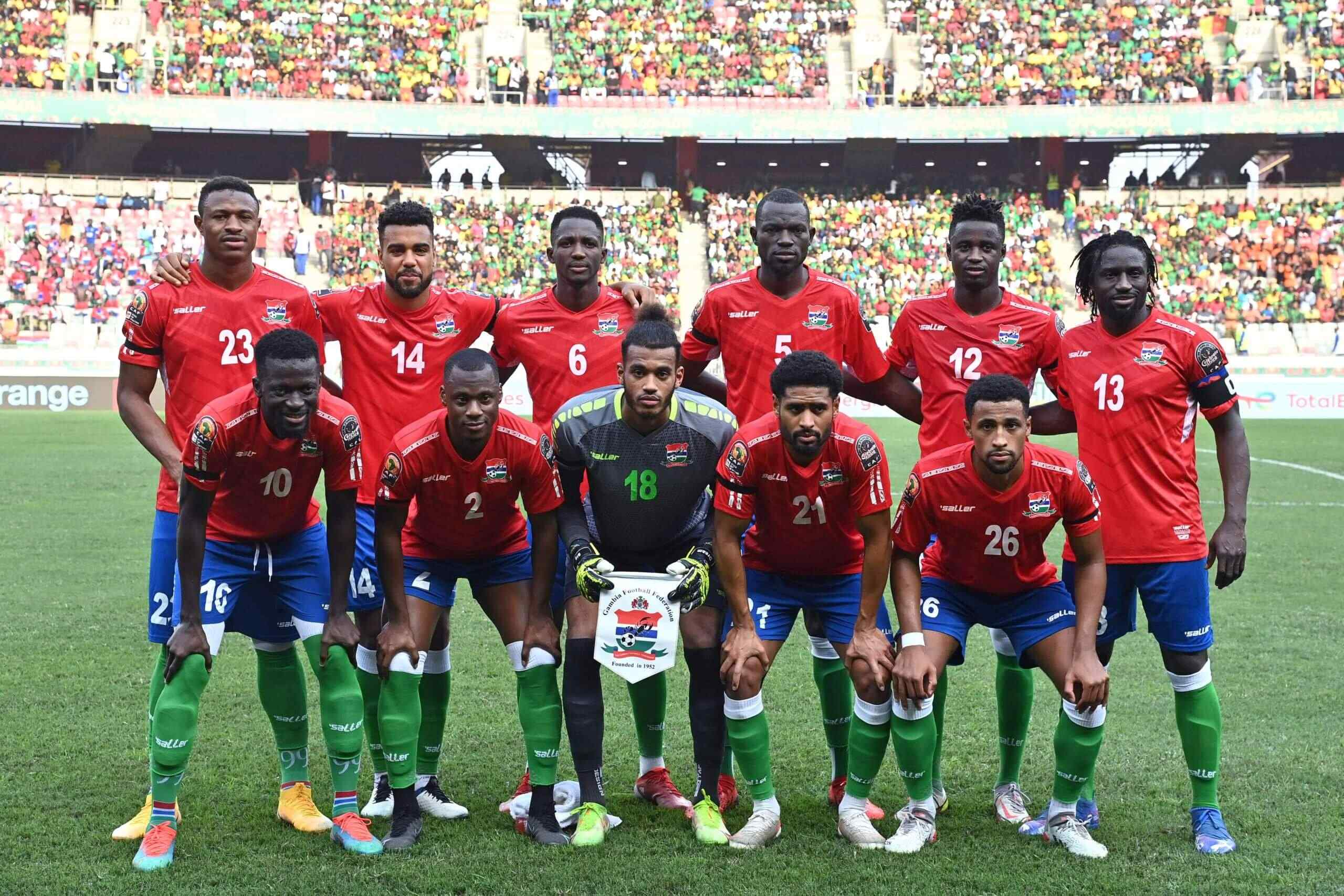
With the national team qualifying for the Africa Cup of Nations twice, football (soccer) is the most often played sport in Gambia. Other often-used sports are athletics, basketball, and wrestling.




